November 28, 2025 | 00:20 GMT +7
November 28, 2025 | 00:20 GMT +7
Hotline: 0913.378.918
November 28, 2025 | 00:20 GMT +7
Hotline: 0913.378.918
Smart rice farming in the 2021-2022 winter-spring crop program has been implemented since October last year. Despite the Covid-19 epidemic in Mekong Delta, the program is implemented at a large scale, involving 24 models in 13 provinces and cities across the region.
Farmers and technical forces partaking in the initiative were trained in tilling skills, irrigation management, IPM (integrated pest management), seed reduction, fertilization, proper ripe harvest, and environmentally friendly farming…
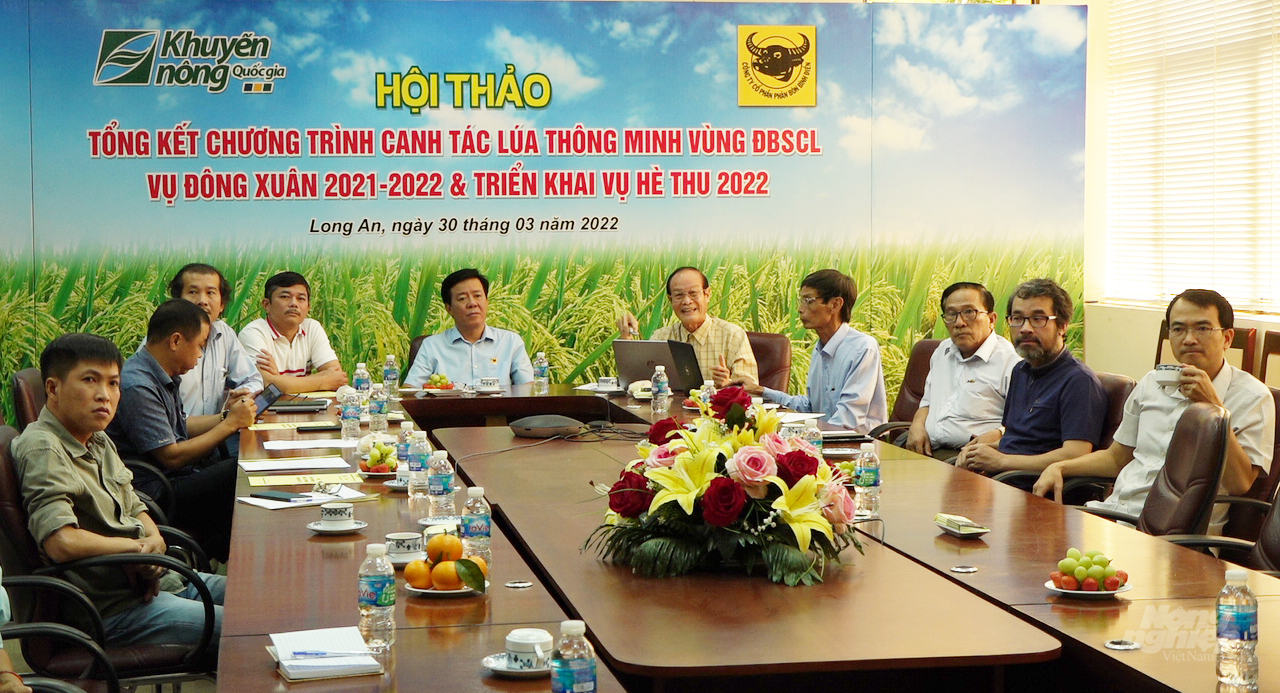
Conference on Smart Rice Farming Program. Photo: Minh Sang.
Mr. Ngo Van Dong, director of Binh Dien Fertilizer Company joyfully revealed that the Smart rice farming program for the 2021-2022 winter-spring crop in Mekong Delta has delivered a series of recognizable outcomes. Especially in the context that costs of agricultural materials climb while that of rice drops, adverse weather, and epidemic throughout the winter-spring harvest. All 24 models generated satisfactory results.
Farmers engaging in the model are also unhesitant to apply many cultivation measures in the smart rice farming process in the field, in which the application of mechanized sowing methods such as cluster seeding, transplanting, row sowing helps reduce the average yield of seeds to 75.7 kg/ha, 112 kg/ha lower than the control and the current mass production of about 150 kg/ha.
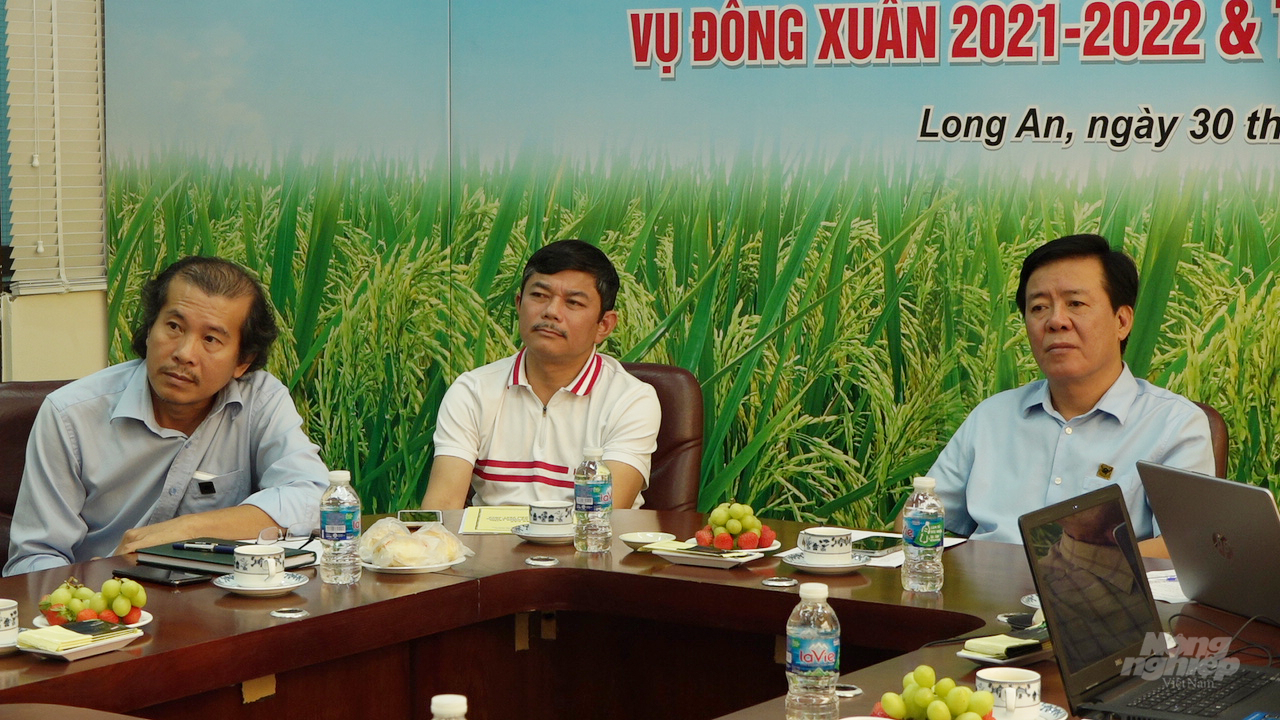
Delegates attended and followed the conference reviewing the smart rice farming program for the Winter-Spring crop 2021-2022. Photo: Minh Sang.
To effectively reduce seeds, farmers paid greater attention to tilling the soil, implementing measures to handle toxic substances in the soil such as alum, salt, organic poisoning, and adopting methods to regulate irrigation water and IPM. Thereby, it led to a decrease in farming expenses, contributing to greater profits, as well as lowering the number of spraying times to protect the environment and provide safer rice products.
According to experts, Dau Trau fertilization in line with the recommended process presented better efficacy compared to the control, almost models produce higher output than the control. Particularly, fertilizing with Dau Trau Man Phen to enhance the soil, produce a healthy soil environment, and supply early nutrition along with thin sowing have been demonstrated the effectiveness of models in the 2021-2022 winter-spring.
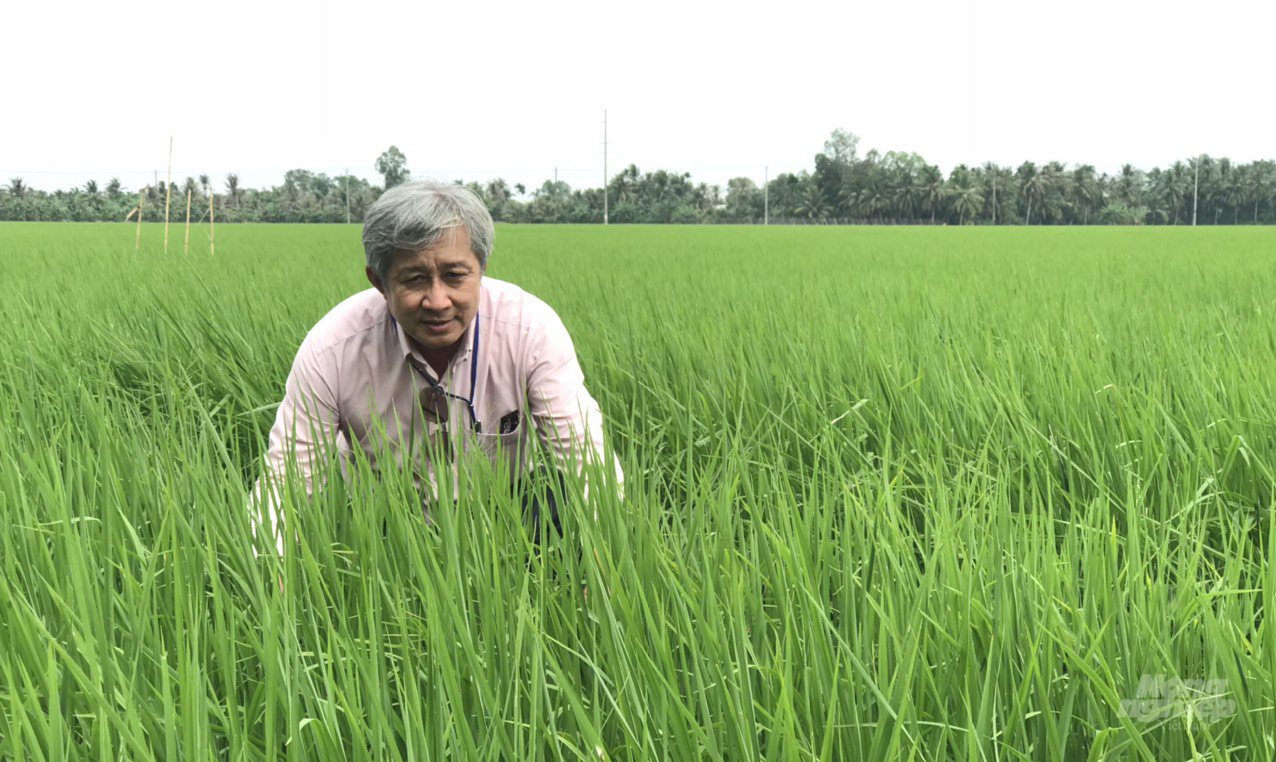
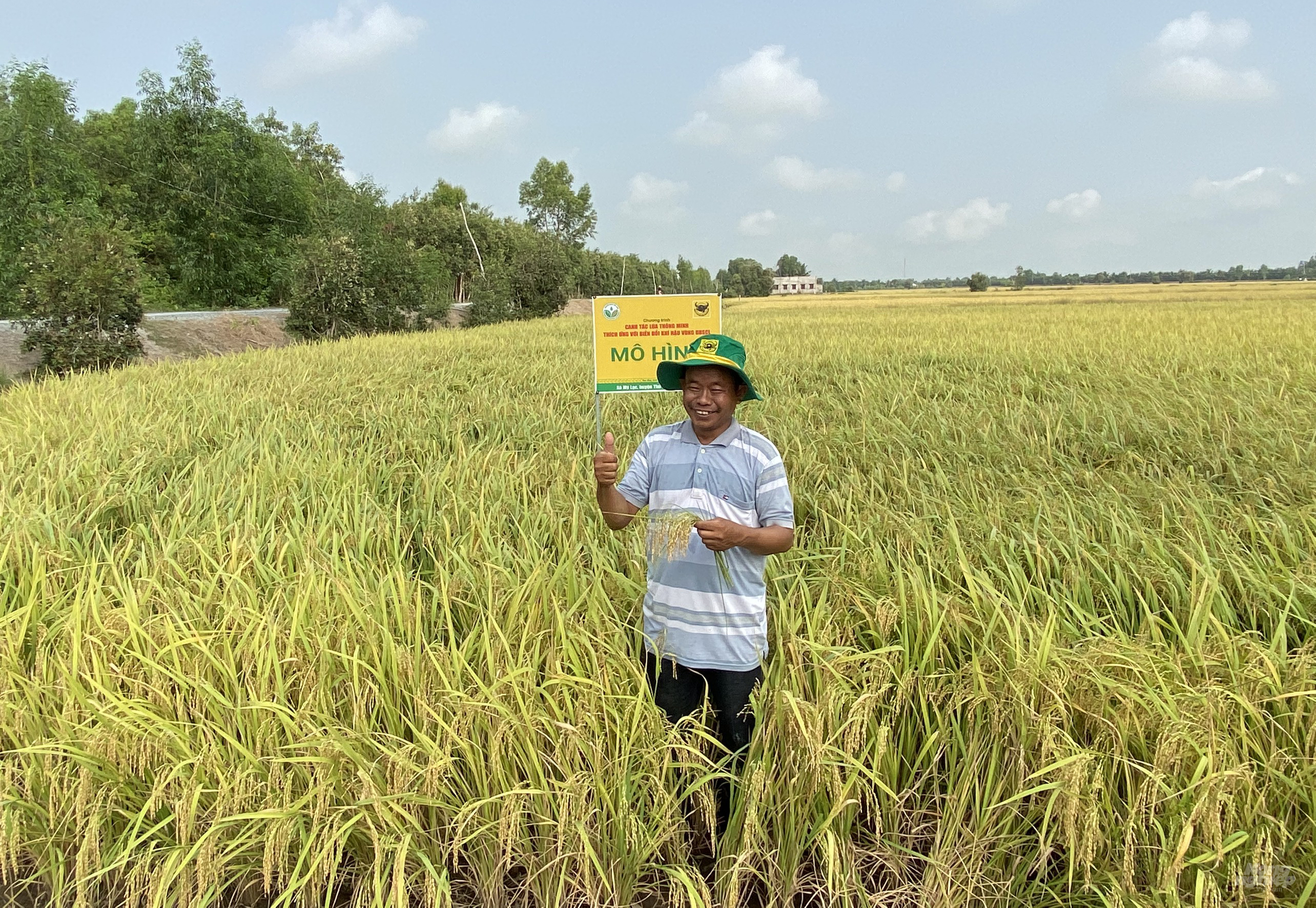
The models not only help update the skills of farmers but also have a great impact on neighboring farmers. Photo: Binh Dien.
Based on output and profit come out of the model, it is defined that the process of fertilizing Dau Trau manure create an average optimal yield for 24 models, a rise of 870 kg/ha compared to the control, so helping to enhance the profit to over VND 5.2 million/ha.
The models only assist farmers to update more skills but also push a great influence on the vicinity agricultural households. Additionally, some farmers utilize proactive fertilizing techniques based on the prior winter-spring crop models. Simultaneously, the program is being constantly implemented for the summer-autumn of 2022 in the Mekong Delta to lay a foundation for recommendations and to confirm the program's efficiency amid adverse weather conditions.
NAEC, in collaboration with Binh Dien Fertilizer Company, Agricultural Extension, and Service Centers throughout the Mekong Delta, will improve its performance in the summer-autumn crop of 2022. The units will continue to apply the models in 24 locations throughout the summer-autumn crop, while also implementing two new models in U Minh Thuong - Kien Giang and Thanh Hoa - Long An.
Binh Dien Fertilizer Company would supply free fertilizers for models launched during the summer-autumn crop of 2022. Additionally, the firm will hold a virtual training course at the start of the crop to instruct farmers on certain essential cultivation measures for the summer-autumn crop, integrating with the conference for reviewing the 2021-2022 winter-spring crop and executing the 2022 summer-autumn crop.
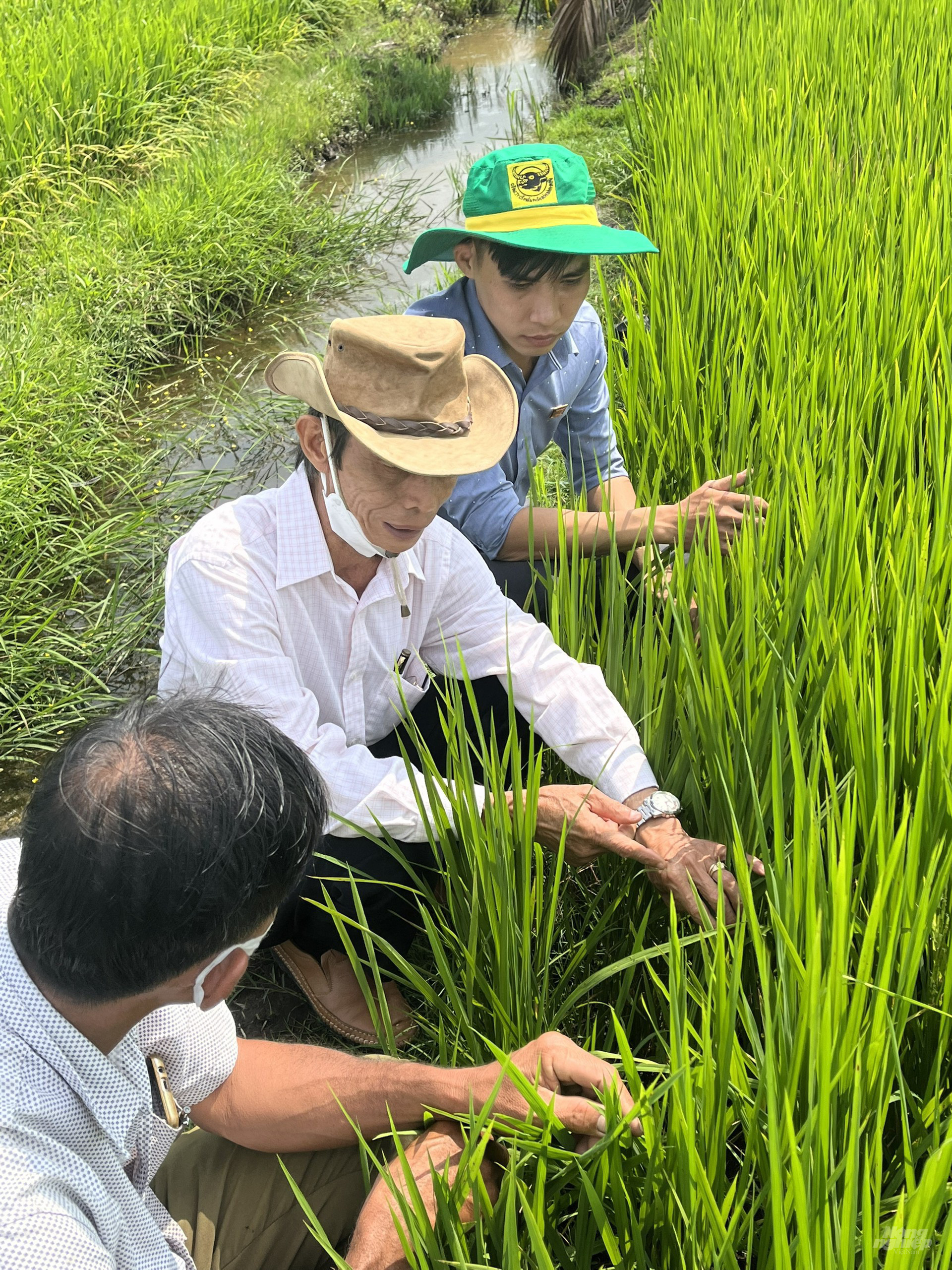
The advisory board and technical experts will regulate and add certain income criteria to evaluate the models' efficiency better. Photo: Binh Dien.
The advisory board and technical experts will regulate and add certain income criteria to evaluate the models' efficiency better. The relevant parties will examine farming households and evaluate soil samples taken from the model fields. The emphasis will be on integrated pest management solutions, while the amount and expense of unnecessary plant protection agent applications will be decreased. All rice samples collected at the end of the crop will be reviewed to determine the rice farming rate that is proven safe in the models.
The Organization Board will evaluate the program's first two years of execution and will hold a contest for smart Mekong Delta rice farmers. Binh Dien Fertilizer Company is planning to promote this event to 1,000 to 1,500 farmers by including it within the Agritechnica event, which is slated to take place in late August 2022, featuring 15 countries.
Translated by Linh Linh

(VAN) On November 27, in the meeting with Minister Tran Duc Thang, Mayor Yin Yong shared Beijing’s experience to improve environment and air quality.

(VAN) After 30 years, both sides identified strategic areas of cooperation: sustainable production, increasing coffee value and training for farmers.
/2025/11/27/4910-4-164708_294.jpg)
(VAN) On the afternoon of November 27 in Beijing, Minister of Agriculture and Environment Tran Duc Thang held a working session with several major Chinese enterprises operating in the agriculture and environment sector.

(VAN) The Department of Animal Health issued a provisional guideline requesting local authorities to increase surveillance, collect samples for testing, and conduct epidemiological investigations according to the established procedure.

(VAN) The United Nations recommends that Vietnam utilize data and artificial intelligence to enhance early disaster warnings and reduce GDP losses by 3.2% in the context of climate change.

(VAN) On the morning of November 27 in Beijing, Minister Tran Duc Thang and the Deputy Commissioner General of the General Administration of Customs of China signed a protocol on fresh jackfruit exports.

(VAN) As floodwaters recede, a vast network of irrigation works across eastern Gia Lai is emerging in a state of severe disrepair, with extensive damage demanding urgent restoration ahead of the 2025-2026 winter-spring cropping season.